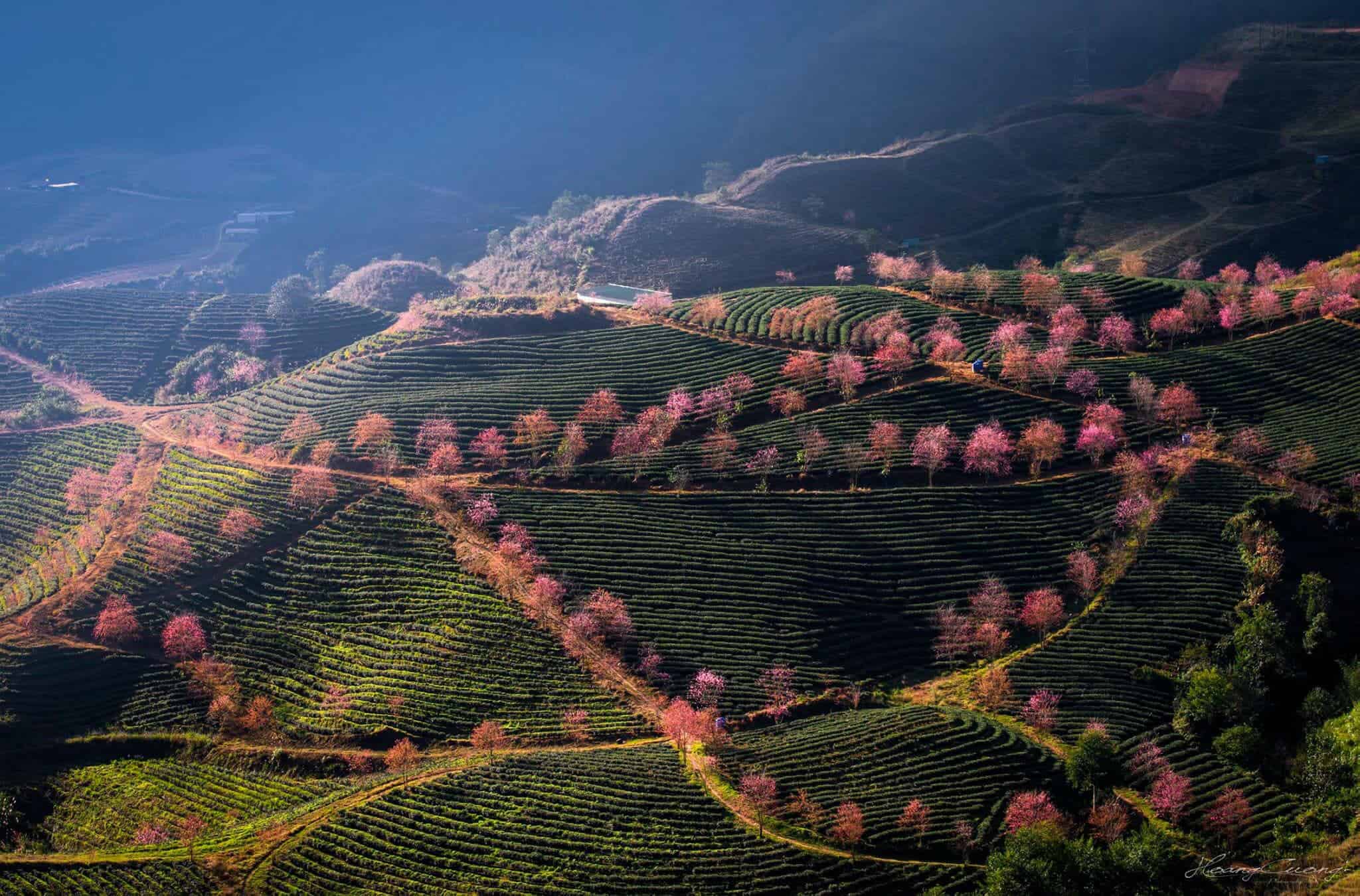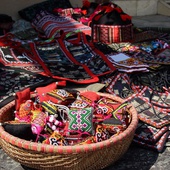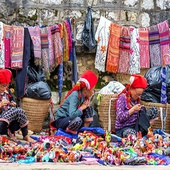Best Time to Visit Sapa: When to Go & Monthly Weather Averages
Sapa Weather
Thanks to its geographic conditions, Sapa boasts one of the most favorable climates in Vietnam. The temperature remains cool throughout the year, although winter can bring significant changes, including frost and even snow, typically from mid-December to mid-January.

Humidity is relatively high year-round, between 83-87%, and temperatures range from 15-30 degrees Celsius. If you're planning to include Sapa in your itinerary, be sure to pack some warm clothing, as it can get quite chilly at night.
How hot is Sapa?
Not very, especially in comparison to Hanoi or Ho Chi Minh City. Sapa's high altitude makes it an ideal summer retreat during the often oppressive heat of the lowlands, and the town's sparse population contributes to a refreshing atmosphere.
How wet is Sapa?
Prepare to bring a raincoat if visiting during the summer months, as sporadic showers can occur. In winter, fog and frost can make it cold enough to require warm, rain- and wind-proof outerwear.
Monthly Averages
In Sapa, you can experience a unique phenomenon of four seasons in a single day: fresh spring in the morning, summer sunshine at noon, cool autumn in the afternoon, and the chill of winter at night. Sapa is also one of the rare places in Vietnam where you can see snow fall during winter. Temperatures can dip below zero Celsius from December to February, and many trees in town are often covered in ice. Even during the summer months of June to August, the climate remains moderately cool, with daytime temperatures ranging from 20 to 25 degrees Celsius and night temperatures from 13 to 15 degrees Celsius.
Below is the updated table with Sapa's weather by month:
| Month | Average Temperature | Precipitation |
| January | 8°C | 140mm |
| February | 7°C | 80mm |
| March | 14°C | 100mm |
| April | 17°C | 160mm |
| May | 18°C | 250mm |
| June | 20°C | 290mm |
| July | 19°C | 480mm |
| August | 19°C | 670mm |
| September | 18°C | 260mm |
| October | 16°C | 60mm |
| November | 12°C | 150mm |
| December | 8°C | 60mm |
Best Time To Visit Sapa
During the summer months, Sapa becomes a bustling destination for domestic travelers, which can detract from the authentic experience. This peak season typically spans from June to August.
To enjoy a more tranquil and nature-focused holiday, consider visiting during the periods of March to May and September to November. September is particularly special as it marks the harvest season in Sapa; don’t forget your camera to capture the stunning landscapes!
Sapa Weather In Brief
- March - May: perfect weather—warm and dry—for trekking and outdoor activities
- June - September: rainy season with larger crowds of Vietnamese tourists
- Late September - mid-December: cool, dry weather—ideal for photography and trekking
- Mid-December - February: harsh winter but fewer tourists—great for people observation

What To Bring On Your Trip to Sapa
To enjoy the trip and having the best experience in Sapa, tourists are advised to be well-prepared before setting off. The average temperature in Sapa is much lower than other regions in Vietnam, and the mountainous terrain may require specialized tools.

Sapa - What To Bring Home
Sapa, the small tourist town of Vietnam’s northwest region, reminds us of a wildly beautiful area where travelers can gain great trekking experience while discovering the rich culture of ethnic minorities groups.








